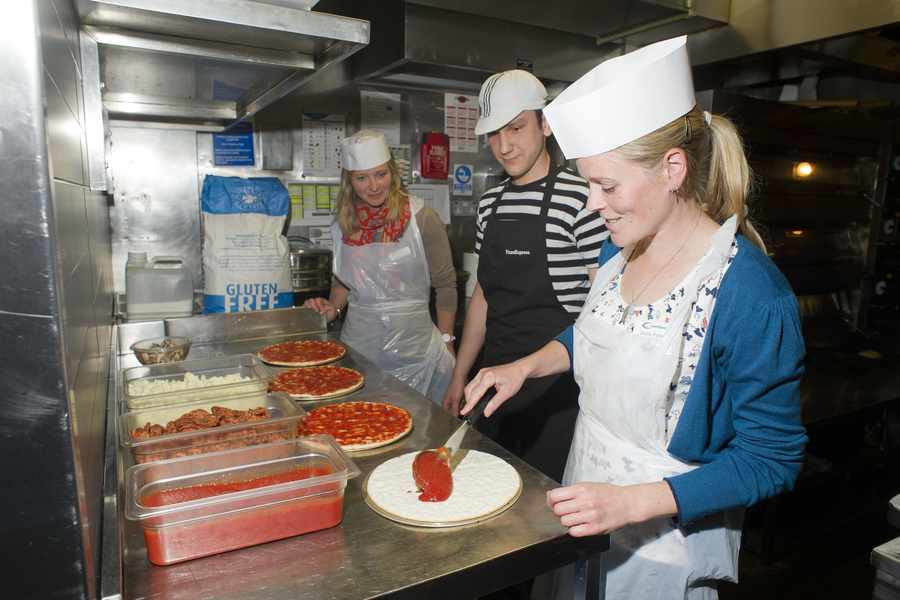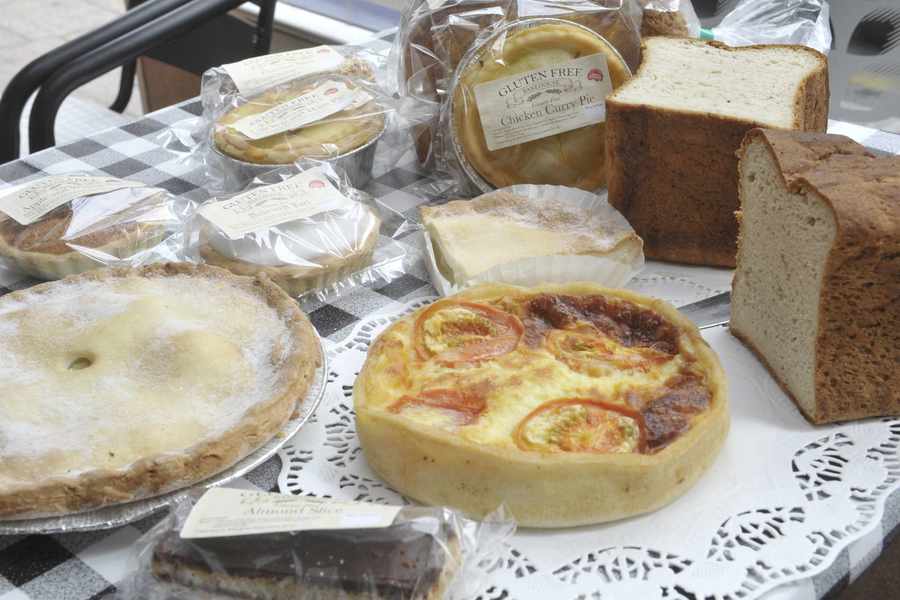- Jersey shoppers warned after ‘gluten-free’ foods found to contain traces of gluten
- Several supermarkets have been affected, including Waitrose
- Shoppers who have purchased affected items have been promised full refund
- Do you have a wheat intolerance? Take our poll below
ISLANDERS who have a gluten allergy or intolerance are being warned not to eat a number of products sold by supermarkets in Jersey and the UK after it was found that they may contain traces of gluten.
The warning comes after it was reported in the national press that gluten-free products sold in Asda, Sainsbury’s, Waitrose, Tesco and Morrisons had been recalled.
The Food Standards Agency said that items were a possible health risk for those with a gluten allergy or intolerance. However, people who do not have an intolerance to gluten are safe to eat the products.
Waitrose in Jersey has advised Islanders who react to gluten not to eat four items sold at their supermarkets. These are Genius gluten-free crumpets (best before 18 June to 26 June), Waitrose gluten-free pancakes (best before 25 June to 3 July), gluten-free pitta bread (best before 25 June to 3 July) and gluten-free scones (best before 7 June to 15 June).
Signs are in place at the Red Houses and St Saviour branches advising customers to return the affected products. They will be given a full refund.
A spokesman for Waitrose said: ‘As a precaution, we immediately recalled these products on 5 June from our shops and we are advising any customer who reacts to gluten not to eat them. Quality and safety are our highest priorities and we are very sorry for any inconvenience caused.’
The affected products were all made by a bakery run by food company Genius.
Suzie Parker, a committee member of Coeliac Support Group Jersey, said that there were several hundred gluten-free Islanders in Jersey who may have also purchased products from UK stores, so they should also check those items.
‘We find that there is not a huge amount of choice here and things are much harder to come by, so you have to stock up in the UK, or family members can bring it over,’ she said.
‘We were made aware by the national news and we have been sharing this information with people in Jersey. I have a freezer full of things from the UK.’
Islanders who bought gluten-free pizza bases, garlic and coriander naan breads or white pitta breads from Asda with certain best-before codes should not eat them if they have an allergy or intolerance to gluten.
Items also includes pizza bases, multi-seeded and white pitta breads, sultana scones, garlic and coriander naan breads and syrup pancakes from Sainsbury’s, crumpets, pizza bases, pitta bread and naan bread from Tesco, as well as pizza bases from Morrisons.

The level of gluten in the recalled products is thought to be ‘very low’. However, the Coeliac UK charity have asked people who have had symptoms after eating one of the affected items and would like advice or assistance on what to do to call their helpline on 0845 305 2060.
More information can be found on the Jersey Coeliac Support Group Facebook page.

GLUTEN is an ever present component of our diet for most people: it’s in wheat, it’s in rye, it’s in barley and, consequently, it’s also in pretty much all pre-made foods, sauces and condiments.
For the majority of people this is not a problem – gluten itself is simply a protein composite that, among other things, gives dough its elasticity and helps it keeps its shape – however, for 1 in 100 people living in the UK at least, gluten’s seeming omnipresence in the nation’s diet is potentially life threatening. Coeliac disease is a lifelong autoimmune disease which is triggered by eating gluten.
For people with coeliac disease, eating gluten damages the lining of the gut. This prevents the normal digestion and absorption of food.
There are serious health problems associated with coeliac disease including osteoporosis, bowel cancer and increased risk of other autoimmune diseases. Coeliac disease is a form of food allergy and is not a food intolerance. Food allergies are generated by the immune system and usually occur within seconds or minutes of eating the food in question.
Tiny amounts can cause potentially life-threatening allergic reactions, which is why it is vital to know about the ingredients and preparation of foodstuffs. Food intolerance is not triggered by the immune system and is generally not life threatening.






